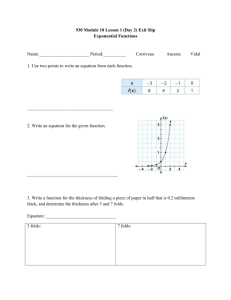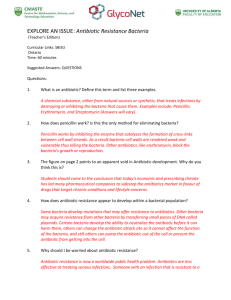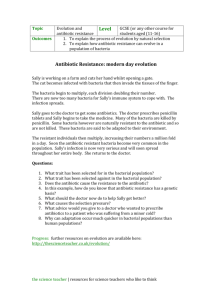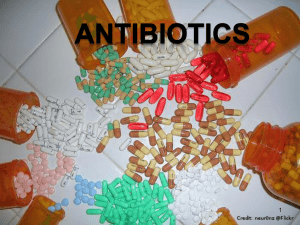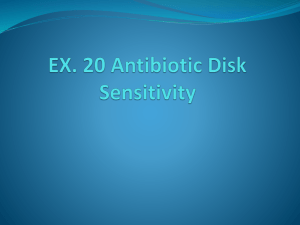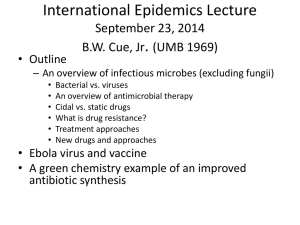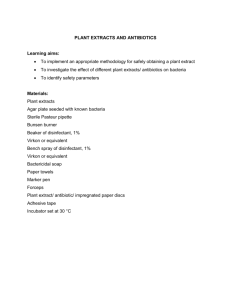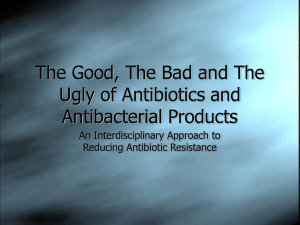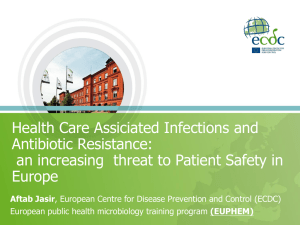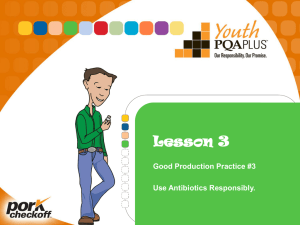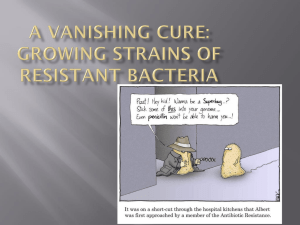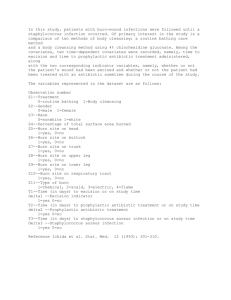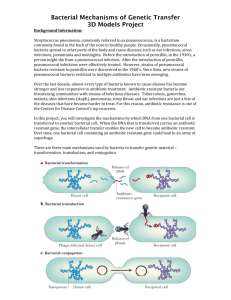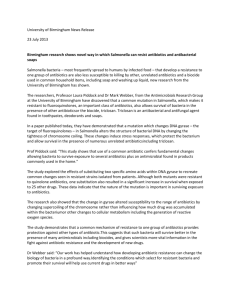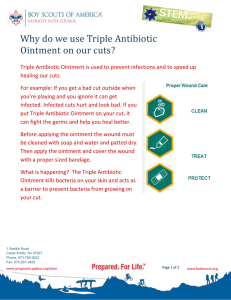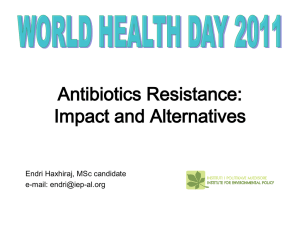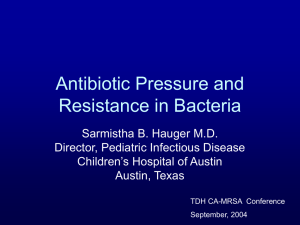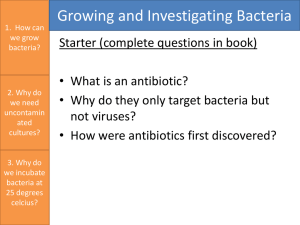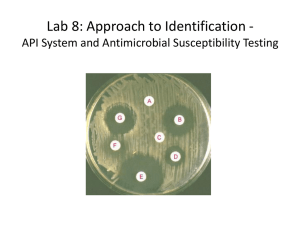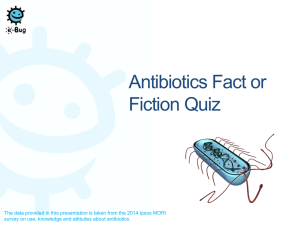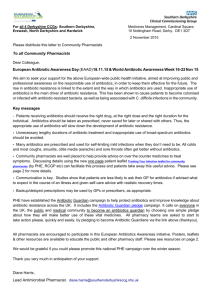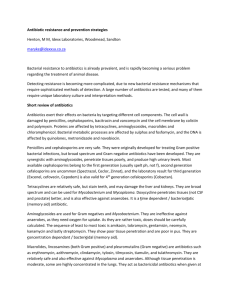Gail Hansen
advertisement
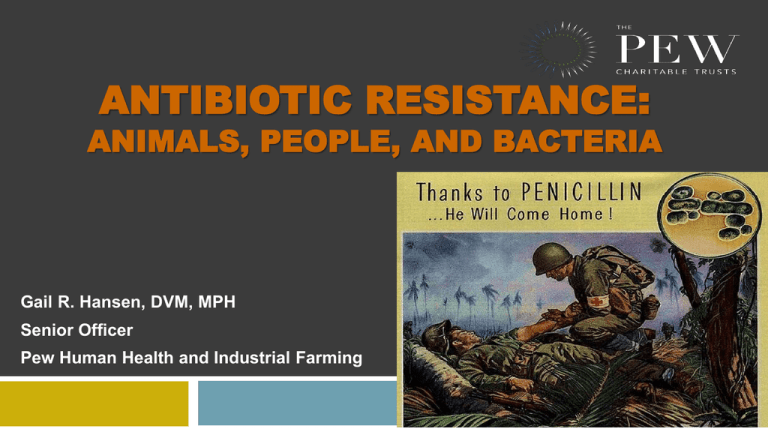
ANTIBIOTIC RESISTANCE: ANIMALS, PEOPLE, AND BACTERIA Gail R. Hansen, DVM, MPH Senior Officer Pew Human Health and Industrial Farming The problem Antimicrobial resistance is one of the most significant challenges facing modern public health All antibiotic use can potentially create antibiotic resistant bacteria Consequence of resistant bacteria • Infections that would not have otherwise occurred • Infections harder to treat • Increased severity of infections, death Antibiotic resistance 3 key concepts 1. Bacteria become resistant to antibiotics, animals and people don’t 2. Bacteria generation time is minutes, not years 3. Bacteria share resistance with other bacteria (don’t have to be related bacteria) The Problem Antibiotics overuse in food animals is detrimental to human health • FDA, CDC, USDA • WHO/FAO/OIE recommendations Antibiotics used for animal production often are the same ones used to treat infections Why it’s not a simple problem Antibiotics are “societal drugs” There are a lot of food animals • 9 billion food animals /year • Each animal is a potential reservoir and amplifier Why it’s not a simple problem Antibiotics are “societal drugs” There are a lot of food animals • 9 billion food animals /year • Each animal is a potential reservoir and amplifier How antibiotic resistance happens Add antibiotics X XX X X X X XX X X X X X XX XX X Susceptible bacteria Resistant bacteria X Dead bacteria Sources of Antibiotic Resistance Wildlife (Birds, Rodents, Insects) Environmental (Dust, Waste, Water)) Food animals Feeds Humans Pets Adapted from Nordmann P. 2005 CNFMI Produce Antibiotic Uses in Animal Production Treatment • Sick animal(s), high doses • Rx, some OTC Control • Treat exposed groups • Rx and OTC Antibiotic Uses in Animal Production Prevention • Ideally for high risk populations for limited time • OTC Growth promotion/feed efficiency • Low doses • OTC Antibiotic Sales Antibiotic Uses in Animal Production Antibiotics are regularly given to healthy animals in food and water • Legally OTC, no veterinary oversight • Approvals when residues were the only public health concern • Increase potential reservoirs Why not antibiotic free? Sometimes animals get sick too • Humane (and required) to treat sick animals • Treated animals that get well need to go somewhere • ABF producers move treated animals into conventional markets Sick animals are not allowed in the food chain • Must be healthy to be processed What’s Congress doing? Antibiotic Use legislation • PAMTA (H.R. 1150) Preservation of Antibiotics for Medical Treatment Act • PARA (S. 1256) Preventing Antibiotic Resistance Act Data and tracking • DATA Act (H.R. 820) • ADCA (S. 895) Regulatory—FDA Guidance #209, #213 • Voluntary, no growth promoters after 2016 Veterinary Feed Directive • Help move OTC to Rx Conclusion We must all be good stewards www.SaveAntibiotics.org Questions? ghansen@pewtrusts.org www.SaveAntibiotics.org
